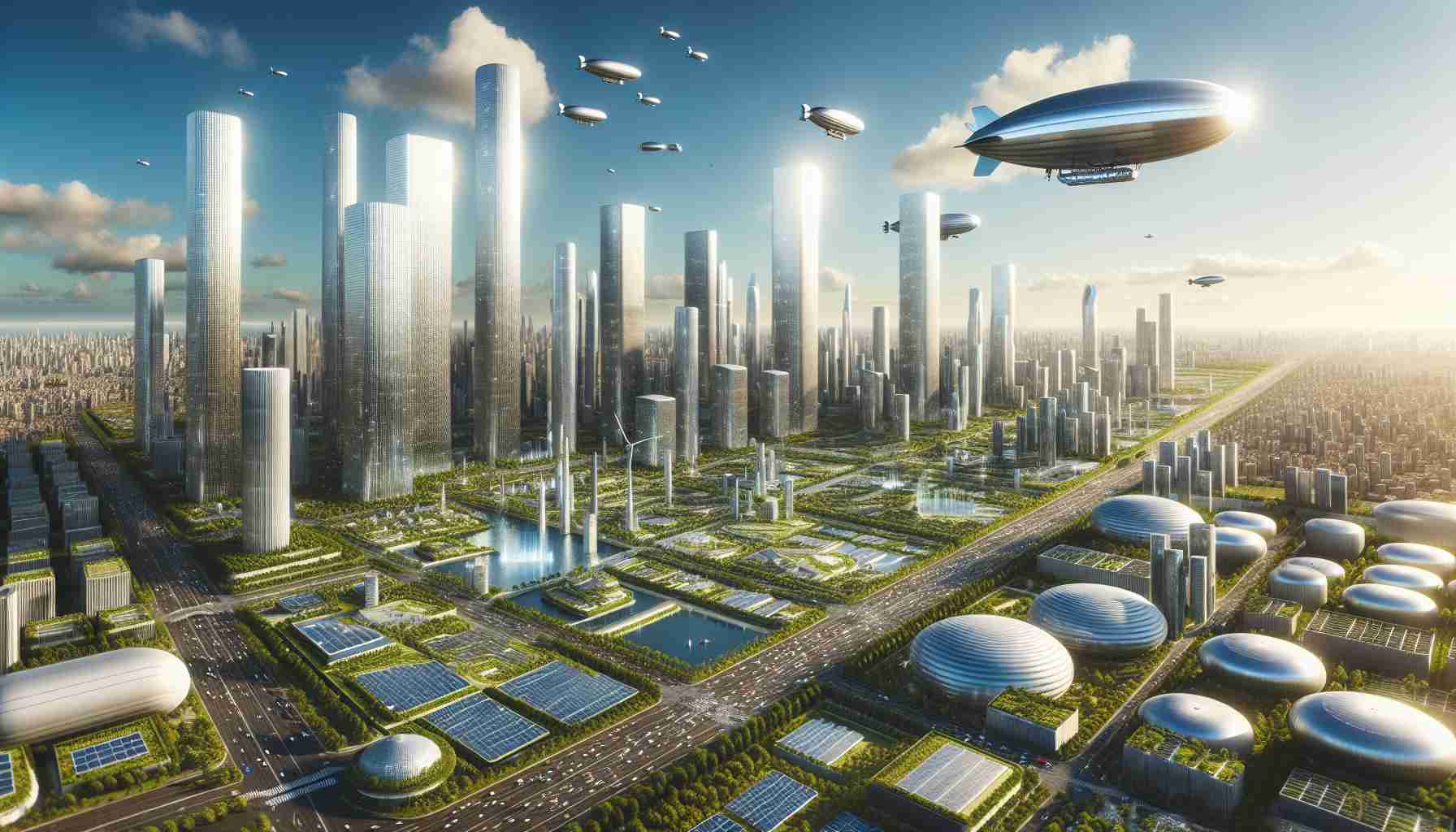Innovative Transition to Clean Energy
In a remarkable move towards a sustainable future, a city in China has begun its journey to operate entirely on hydrogen energy, captivating the attention of environmental experts worldwide. This groundbreaking initiative aims to drastically reduce carbon emissions and offer a new model for urban sustainability amidst the pressing issues of climate change.
The recent announcement from Lamma Power Station reveals that HK Electric is set to construct a new gas-fired generating unit, enabling the decommissioning of coal power by 2035. This transition is significant, as coal-fired plants are notorious for their harmful emissions, making way for a cleaner and greener energy portfolio.
Harnessing hydrogen’s potential, the city plans to integrate this resource into multiple sectors, including transport, industrial processes, and electricity generation. As experts validate hydrogen’s efficiency through various trials, early results indicate a promising scenario for the city’s ambitious goals.
Additionally, the leadership team, led by HK Electric’s managing director, recently visited a state-of-the-art facility in Japan that showcases cutting-edge hydrogen production and storage techniques. This partnership aims to tackle the challenges associated with hydrogen infrastructure, ensuring a reliable and independent energy supply.
With plans for a full hydrogen implementation by 2025, this city’s endeavor not only represents a significant advancement in environmental practices but also sets a precedent for global energy transitions. As it nears completion, the project stands as a beacon of hope in the battle against climate change.
Hydrogen Energy: The Future of Urban Sustainability
Innovative Transition to Clean Energy
A city in China is making waves in the realm of sustainable energy with its bold initiative to transition entirely to hydrogen energy. This transformative project has captured the attention of environmental leaders and advocates around the globe, aiming to dramatically cut carbon emissions and establish a new benchmark for urban sustainability amid urgent climate challenges.
Features of the Hydrogen Energy Initiative
– Carbon Emission Reduction: The primary goal of this initiative is to eliminate carbon emissions produced by traditional energy sources like coal. By integrating hydrogen, the city is poised to make significant strides in reducing its environmental footprint.
– Multi-Sector Integration: The project will not only focus on electricity generation but will also incorporate hydrogen into transportation and industrial processes, promoting a holistic approach to energy sustainability.
– State-of-the-Art Technology: Recent collaborations with advanced facilities in Japan have enabled the city to explore and utilize leading hydrogen production and storage technologies. This collaboration is crucial for developing a robust hydrogen infrastructure.
Use Cases of Hydrogen Energy
– Transportation: Hydrogen fuel cells can power buses, trucks, and even passenger vehicles, offering a cleaner alternative to traditional fossil fuels.
– Industrial Applications: Industries can utilize hydrogen in various processes, including steel production and chemical manufacturing, reducing reliance on carbon-intensive fuels.
– Electric Generation: Hydrogen can serve as a fuel source for power plants, enabling a sustainable and reliable energy supply, particularly during peak demand times.
Pros and Cons of Hydrogen Energy
Pros:
– High Efficiency: Hydrogen energy systems are highly efficient, allowing for significant energy recovery in applications such as fuel cells.
– Abundant Resource: Hydrogen is the most abundant element in the universe, providing a virtually limitless potential for energy generation.
– Environmental Impact: When burned for energy, hydrogen produces only water vapor, making it a clean alternative to fossil fuels.
Cons:
– Infrastructure Challenges: Developing the necessary infrastructure for hydrogen production, storage, and distribution presents logistical hurdles.
– Cost of Production: Current hydrogen production methods can be costly, particularly if relying on renewable energy sources, though prices are expected to decrease with advancements and scale.
Current Trends in Hydrogen Technology
As cities worldwide pivot towards cleaner energy sources, hydrogen has emerged as a key player in the energy transition narrative. Increased investments in hydrogen technology are expected, fueled by advancements in renewable energy, electrolysis, and battery storage. According to market analysts, the hydrogen energy market is predicted to grow at a compound annual growth rate (CAGR) of over 20% in the coming years, driven by both industrial and consumer demand.
Innovations in Hydrogen Production
Recent innovations have made hydrogen production more sustainable and efficient. Techniques such as green hydrogen production, where water is split into hydrogen and oxygen using renewable energy sources, are gaining traction. This process significantly reduces the carbon footprint associated with hydrogen production.
Sustainability and Security Aspects
The move toward hydrogen energy aligns with global sustainability goals, including greenhouse gas reduction targets set by the Paris Agreement. Moreover, diversifying energy sources with hydrogen enhances energy security, reducing dependence on imported fossil fuels and stabilizing energy prices.
Market Analysis and Future Predictions
The market for hydrogen energy is in a dynamic phase, with numerous countries and corporations investing heavily in research and development. By 2030, analysts predict hydrogen could play a critical role in achieving net-zero emissions across various sectors. This shift not only promotes environmental sustainability but also opens new job opportunities in green technology sectors.
As the city continues its transition to a hydrogen-based energy framework, it will serve as a model for others looking to embrace clean energy solutions. The successful implementation of this project could pave the way for a more sustainable future globally.
For more information on renewable energy initiatives, visit Example.













